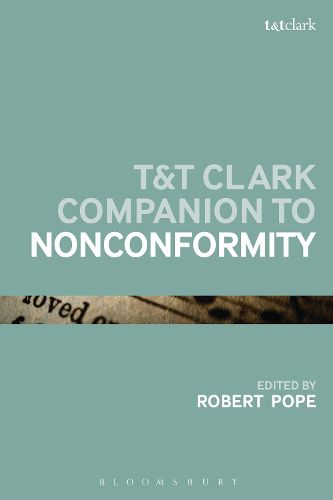Readings Newsletter
Become a Readings Member to make your shopping experience even easier.
Sign in or sign up for free!
You’re not far away from qualifying for FREE standard shipping within Australia
You’ve qualified for FREE standard shipping within Australia
The cart is loading…






Protestant Nonconformity, the umbrella term for Congregationalists, Presbyterians, Baptists, Methodists and Unitarians, belongs specifically to the religious history of England and Wales. Initially the result of both unwillingness to submit to the State’s interference in Christian life and a dissatisfaction with the progress of reform in the English Church, Nonconformity has been primarily motivated by theological concern, ecclesial polity, devotion and the nurture of godliness among the members of the church. Alongside such churchly interests, Nonconformity has also made a profound contribution to debates about the role of the State, to family life and education, culture in general, trade and industry, the development of philanthropy and charity, and the development of pacifism. In this volume, for the first time, Nonconformity and the breadth of its activity come under the expert scrutiny of a host of recognised scholars. The result is a detailed and fascinating account of a movement in church history that, while currently in decline, has made an indelible mark on social, political, economic and religious life of the two nations.
$9.00 standard shipping within Australia
FREE standard shipping within Australia for orders over $100.00
Express & International shipping calculated at checkout
Protestant Nonconformity, the umbrella term for Congregationalists, Presbyterians, Baptists, Methodists and Unitarians, belongs specifically to the religious history of England and Wales. Initially the result of both unwillingness to submit to the State’s interference in Christian life and a dissatisfaction with the progress of reform in the English Church, Nonconformity has been primarily motivated by theological concern, ecclesial polity, devotion and the nurture of godliness among the members of the church. Alongside such churchly interests, Nonconformity has also made a profound contribution to debates about the role of the State, to family life and education, culture in general, trade and industry, the development of philanthropy and charity, and the development of pacifism. In this volume, for the first time, Nonconformity and the breadth of its activity come under the expert scrutiny of a host of recognised scholars. The result is a detailed and fascinating account of a movement in church history that, while currently in decline, has made an indelible mark on social, political, economic and religious life of the two nations.